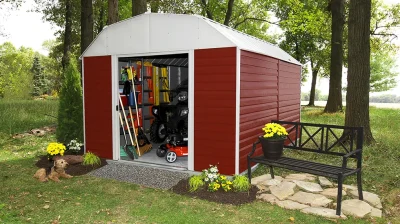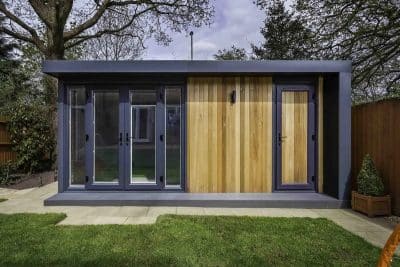
In the era of smart homes, technology has extended its reach into every corner, including the often-overlooked domain of plumbing. Smart plumbing systems have emerged as game-changers, offering homeowners unprecedented control and efficiency in managing water resources. From leak detection to automated water usage monitoring, these technologies are transforming the way we interact with and safeguard our plumbing infrastructure.
Efficiency
A reputable plumber is always up-to-date in modern trends and technology and one of the pillars of smart plumbing is the integration of connected devices. Smart faucets, showerheads, and toilets communicate with each other and the homeowner through a central system, creating a symphony of efficiency in water usage. These devices often boast features such as touchless operation, temperature control, and programmable settings, providing a personalized and convenient experience while minimizing water waste.
Leak Detection
Undetected leaks can wreak havoc on a home’s infrastructure and result in significant water wastage. Smart plumbing systems are equipped with advanced leak detection sensors that continuously monitor water flow and pressure. In the event of an anomaly, these systems can automatically shut off the water supply, preventing potential damage and conserving water. Homeowners receive real-time alerts through mobile apps, ensuring quick response times and minimizing the impact of leaks.
Water Conservation
Understanding how and where water is used in the home is the first step toward effective conservation. Smart plumbing systems provide detailed insights into water usage patterns, helping homeowners identify inefficiencies and areas for improvement. With this information at their fingertips, users can make informed decisions to reduce water consumption, leading to both environmental and financial benefits.
Convenience
The ability to remotely control and monitor plumbing fixtures is a hallmark of smart homes. Whether adjusting the temperature of the shower, turning off the sprinkler system, or checking for leaks while away on vacation, homeowners can manage their plumbing systems from the convenience of a smartphone or tablet. This level of control not only enhances convenience but also contributes to more responsible water management.
Efficiency at Every Turn
Traditional water heaters are notorious for energy inefficiency. Smart water heaters, on the other hand, leverage technology to optimize energy consumption. They can learn household usage patterns and adjust heating schedules accordingly, ensuring hot water is readily available when needed while minimizing standby energy loss. These innovations contribute to both environmental sustainability and reduced energy bills.
Automation Integration
Smart plumbing systems are designed to seamlessly integrate with broader home automation platforms. This integration allows for a unified ecosystem where lighting, heating, security, and plumbing work in harmony. For example, a smart home may adjust the water temperature based on the time of day or turn off the water supply when the security system detects that the house is unoccupied. This interconnectedness enhances overall efficiency and creates a more intelligent and responsive living environment.
Ensuring Health and Safety
Beyond just quantity, the quality of water is a paramount concern. Smart plumbing systems often include sensors that monitor water quality in real-time. Homeowners receive alerts if issues such as contaminants or changes in water composition are detected. This proactive approach to water quality ensures that residents have access to clean and safe water, promoting both health and peace of mind.
Reducing the Water Footprint
Smart plumbing technologies play a significant role in reducing the environmental impact of residential water consumption. By optimizing water usage, detecting leaks promptly, and promoting conscious consumption, these systems contribute to water conservation efforts on a larger scale. As more homes embrace smart plumbing, the cumulative effect becomes a powerful force in mitigating the strain on local water resources.
Navigating the Smart Plumbing Landscape
While the benefits of smart plumbing are evident, it’s crucial to address potential challenges and considerations. Security concerns related to data privacy, the need for regular system updates, and the initial costs of installation are aspects that homeowners must navigate. As the technology evolves, industry standards and regulations will play a pivotal role in ensuring the reliability and safety of smart plumbing systems.
Future Innovations
The world of smart plumbing is continually evolving. Future innovations may include even more advanced leak detection capabilities, integration with artificial intelligence for predictive maintenance, and further enhancements in water quality monitoring. As the technology matures, smart plumbing systems are likely to become more accessible and widespread, transforming the landscape of residential water management.
The Role of Homeowners
In the quest for a sustainable future, homeowners play a crucial role. Embracing smart plumbing technologies is not just a matter of convenience; it’s a commitment to responsible resource management. By investing in these innovations, homeowners contribute to the larger goal of building environmentally conscious communities where water is used efficiently, and the impact on the planet is minimized.
Inclusive Design
A notable aspect of the evolution of smart plumbing is the emphasis on inclusive design. Many smart plumbing fixtures are now equipped with features that enhance accessibility for individuals with mobility challenges or disabilities. Touchless faucets and voice-activated controls, for instance, not only contribute to a more hygienic environment but also make it easier for everyone, regardless of physical ability, to use and control water fixtures independently.
Tailoring Solutions to Specific Needs
Smart plumbing systems generate a wealth of data regarding water usage patterns. Leveraging this data allows for a more personalized and targeted approach to water conservation. Homeowners can receive insights into which specific fixtures or activities contribute most to their overall water consumption. Armed with this information, they can implement tailored solutions, such as upgrading specific fixtures or adjusting usage habits, to maximize conservation efforts where they are most needed. This data-driven approach ensures that conservation efforts are not only effective but also aligned with the unique needs of each household.
In conclusion, the integration of smart plumbing technologies into homes marks a significant leap forward in water management. From leak prevention to remote monitoring, these systems empower homeowners to take control of their water usage in unprecedented ways. As the technology continues to advance, the dream of fully interconnected and intelligent homes that prioritize both efficiency and sustainability is becoming a tangible reality.








